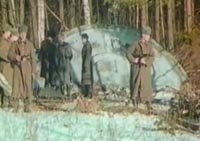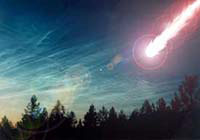
Russia can be in trouble because of Finland's new president
08.02.2012 13:24

Finland elected a new president. It is Saul Niinistö,
a 63-year-old right-wing politician, former Speaker of the Parliament
and a representative of the Coalition Party. While he does not deliver
Anti-Russian speeches, Russia still needs to be alarmed. Niinistö
established himself as a politician who is not opposed to Finland's NATO
membership.
Niinistö won by a large margin. He enlisted the support of nearly 62.6 percent, while his rival, the representative of the "green" Pekka Haavisto, scored 37.4 percent. The losing candidate initially was unacceptable for the residents of the Finnish outskirts. An open homosexual who never served in the Army and who quit the church is too much even for such an "ultra-democratic" country as Finland. This means that for the next six years the country will be led by Niinistö.
Niinistö won by a large margin. He enlisted the support of nearly 62.6 percent, while his rival, the representative of the "green" Pekka Haavisto, scored 37.4 percent. The losing candidate initially was unacceptable for the residents of the Finnish outskirts. An open homosexual who never served in the Army and who quit the church is too much even for such an "ultra-democratic" country as Finland. This means that for the next six years the country will be led by Niinistö.
Saul Niinistö is one of the oldest Finnish
politicians with 35 years of tenure. At various times he served as the
Minister of Justice and Treasury, and the chairman of the Parliament. In
2006 he ran for presidency, but lost to the outgoing President Tarja
Halonen at least by four percent. For some time Niinistö served as the
Deputy Director of the European Investment Bank and knows about the
European policy firsthand.
With regard to the basic internal political
guidelines of the new President, he advocates for raising taxes on the
rich. Before, such statement from the right-wing politicians was
virtually impossible, but the crisis dictates its own terms. Niinistö is
considered a champion of European integration. He strongly objects the
exit of Finland from the euro zone, but openly called the acceptance of
Greece into Euro zone a mistake.
Since Finland is a neighbor of Russia, Niinistö's attitude towards Russia is a very important issue. "Many Russian tourists travel to Finland. At the same time many Finns are interested in and own businesses in Russia. We must create such conditions that our relationship continues to evolve smoothly," said Niinistö in a recent interview with Finnish television. According to him, Russia does not present a threat to Finland.
Since Finland is a neighbor of Russia, Niinistö's attitude towards Russia is a very important issue. "Many Russian tourists travel to Finland. At the same time many Finns are interested in and own businesses in Russia. We must create such conditions that our relationship continues to evolve smoothly," said Niinistö in a recent interview with Finnish television. According to him, Russia does not present a threat to Finland.
Niinistö said that the question of Finland's
accession to NATO could be put to a referendum. In Russia, these words
can be interpreted as support for Euro-Atlantic integration of the
neighboring country with which it has 1,300 kilometers of common border.
Niinistö's companion in the Coalition Party, Foreign Minister Alexander
Stubb of Finland, is known as one of the most ardent "Atlanticists."
Another issue is possible territorial claims of
Finland for Vyborg, Karelia isthmus and part of the territory of
Karelia. Niinistö never made these claims, neither did Finland. However,
there are well-known politicians among those who seek the return of
these territories. The dissatisfaction with the introduction of the ban
on the sale of land in the border zone in Russia was met with resentment
among the country's top leadership. The new President's position is
fundamentally important.
There are a few other important issues in the
Russian-Finnish relations. For example, visas. Although the Finnish
Consulate is different from its many colleagues in the EU because of its
effective work, the leadership of Finland has never talked about the
total abolition of visas. Niinistö has not yet paid particular attention
to this issue.
On the first night after winning the elections,
Niinistö did something that Russia was not particularly happy with. He
appointed the deputy of the European Parliament from the Green Party
Heidi Hautala the Minister of International Cooperation in the affairs
of Finland. She is known for her close ties with the Russian
non-systemic opposition. In addition, she has repeatedly criticized
Russia for poor care of the preservation of the Finno-Ugric peoples.
What could the Russian-Finnish relations under
President Niinistö be like? Should Russia be afraid of their
deterioration and the accession of Finland to NATO? A Finnish professor
and political scientist, chairman of the Finnish Anti-Fascist Committee
Johan Backman answered these questions in an interview with "Pravda.Ru":
"Saul Niinistö cannot be called a supporter of the
Finnish entry into NATO. He never openly spoke of accession to the North
Atlantic Alliance. The very fact of his belonging to the right
Coalition Party that is the biggest advocate for the development of ties
with the U.S. says that he is not an "Atlanticist."
Niinistö's program on Russia reflects quite
objective, realistic interests, focused on economic integration. Being a
supporter of Finland's entry into NATO is equal to committing a
political suicide. The recent polls showed that 68 percent of the Finns
are dead set against NATO membership. Finland will never be its member,
only a madman could demand this.
Niinistö has good political instincts. Here is an example from his biography. He was in Thailand in 2004 when the tsunami hit. Hundreds of people were killed around him, but he escaped. This man was born twice, and it left a mark on his life experiences. In addition, he worked briefly in the European structures, so for Russia such a partner is very convenient.
Niinistö has good political instincts. Here is an example from his biography. He was in Thailand in 2004 when the tsunami hit. Hundreds of people were killed around him, but he escaped. This man was born twice, and it left a mark on his life experiences. In addition, he worked briefly in the European structures, so for Russia such a partner is very convenient.
As for the topic of territorial claims, the very
statement is offensive to people of Vyborg. This issue was settled in
the Paris Peace Treaty of 1947. During the reign of President Martti
Ahtisaari, who was born in Vyborg, there were a number of provocations
on the Finnish side. But Niinistö is not a revanchist. "
Vadim Trukhachev






